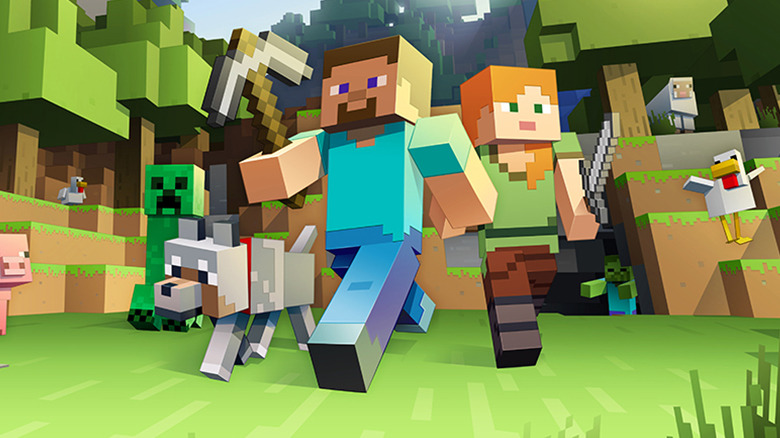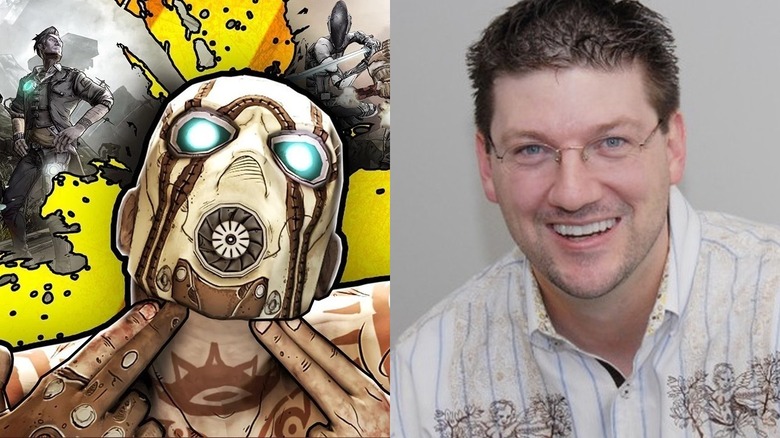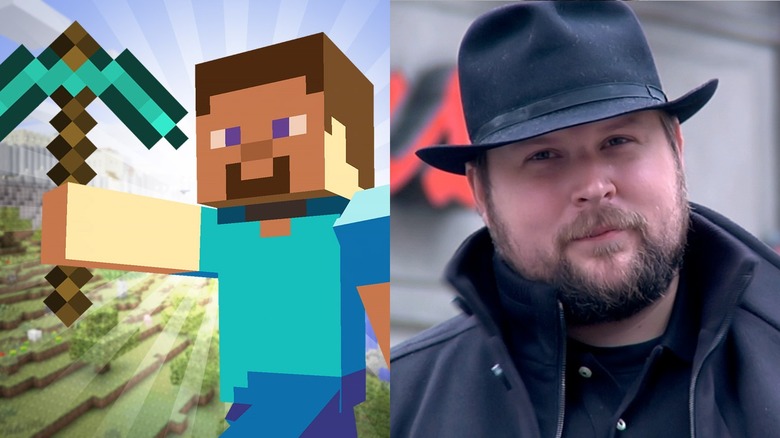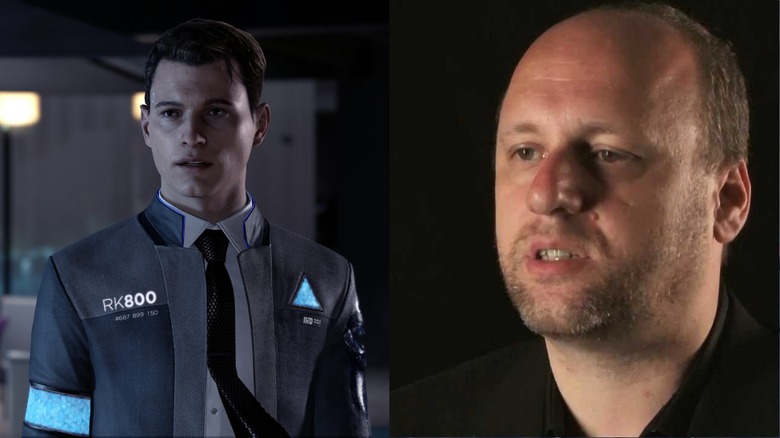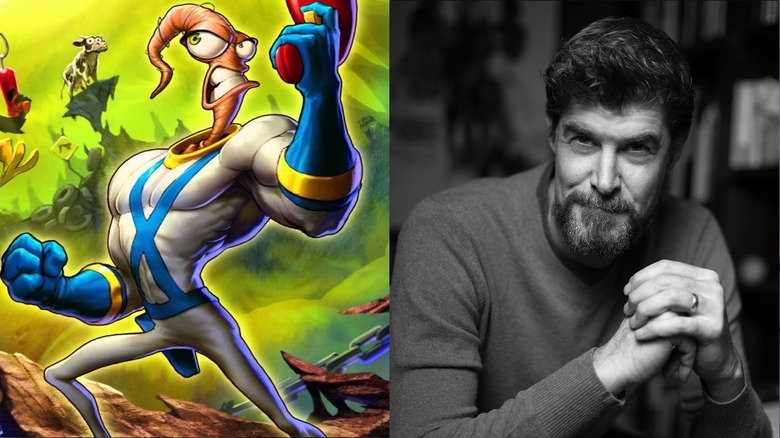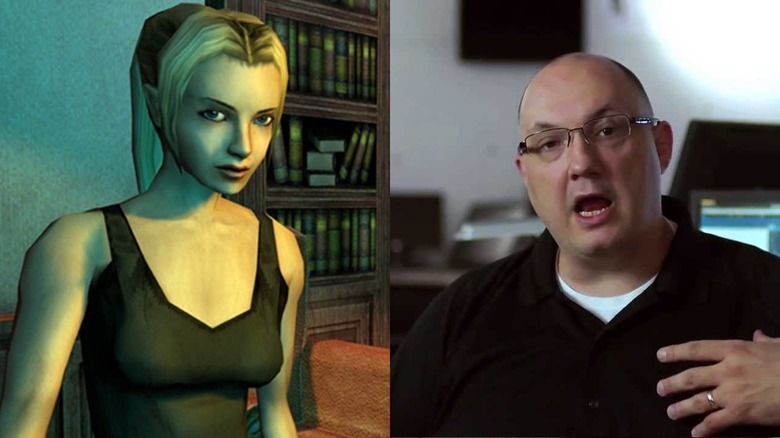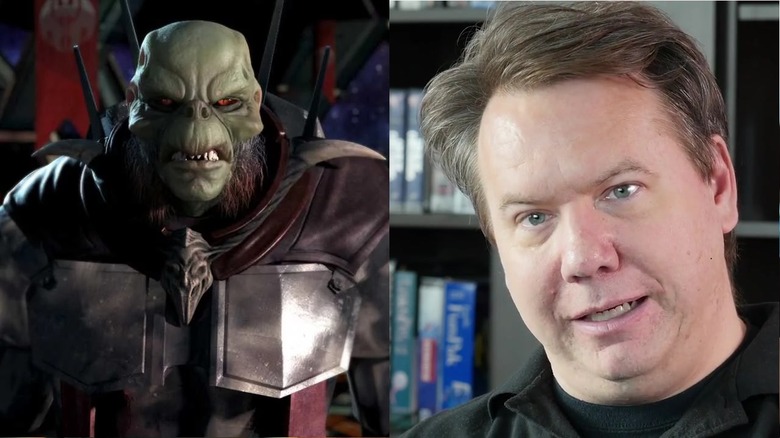Terrible People Who Created Respected Video Games
Nobody ever said that incredible artistic talent had to go hand-in-hand with being a particularly nice person. In fact, oftentimes, the opposite tends to be true. Some of the best films, TV, books, music, and paintings have been made by outright scumbags. Whether intentionally or not, honing one's craft to that extent sometimes means people-skills are jettisoned off in search of perfection. That old adage about how you should never meet your heroes? There's a reason for that.
While we wish we could say video games are made entirely by rad folks who love everybody and want to share fun games with the world, unfortunately, this medium is no exception to the rule. It should come as a surprise to no one that some of the greatest games ever made were made by people who, well, aren't some of the greatest people, to say the least. We've compiled a few of them here. We're sorry in advance for ruining your illusions.
The man who made Fez is a misanthropic tyrant.
Fez is still one of the most loved and lauded indie titles of the last decade, a pixel-art platformer with a unique perspective and charm for days. Somehow, this came from an indie developer who has none of those things.
In the award-winning documentary Indie Game: The Movie, Fish comes off as a raging perfectionist who threatens to kill his partner, then disappears during the game's development. But as much of a terror as he was during Fez's development, success made it all the worse. Fish regularly abused his fan base, telling people to kill themselves, but spared no mercy for his peers either, as seen in an infamous Game Developers' Conference appearance where he tells a humble Japanese developer who had a simple question that his country's games all suck.
The perfect cherry on top of it all is the fact that Fish essentially ragequit game development altogether when an argument with Marcus Beer on Twitter came to a head, and he canceled Fez's sequel on a whim.
The man behind Borderlands makes shady business decisions
The gaming community is still finding debris from the trainwreck that was Aliens: Colonial Marines, with data miners discovering just recently that the game's AI was ruined by a single misspelling in the game's code. Much of the blame can be laid at the feet of Gearbox CEO Randy Pitchford. The behind-the-scenes tale of Colonial Marines' failure is the stuff of legend at this point, from the laughably misrepresentative trailers, to the fact that Pitchford outsourced at least half the game's development while Gearbox took the extra time and money and funneled it into the well-liked and well-reviewed Borderlands 2. Colonial Marines isn't even the only black mark on the company's recent record, from the full on disasterpiece that was Duke Nukem Forever, to the fact that Borderlands' entire visual design might've been ripped off full stop.
The constant, however, is Pitchford, defending every criticism of his company or their work with all the grace of a toddler who doesn't wanna eat broccoli, stretching all the way back to an almost hilariously tone deaf response to Gearbox's work on the mediocre Halo port for PC, to continuing to defend the objectively broken Colonial Marines and Duke Nukem and handing out blocks or venom on Twitter to anyone who dares to questions the decision making that led to either title. Combined with the shady development practices, Pitchford feels less like a CEO than the boss at a mafia-run construction company.
The man who created Minecraft is an awful racist and homophobe
Many influential figures in gaming have been raked over the coals for doing something stupidly racist or sexist, resulting in losing their corporate sponsorship. You'd think more of them would've taken their cues from Markus "Notch" Persson. He at least waited until he cashed out before doing anything stupidly racist or sexist.
Back in 2014, Notch sold Minecraft to Microsoft for $2.5 billion — yes, with a B — in one of the biggest deals in the entire industry. At first, Notch was lonely. Then, well, he got comfortable, in the worst way.
For the most part, Persson spends the majority of his days flitting between "say something racist on Twitter" and "say something homophobic on Twitter", typically with a post using the c-word as a chaser. It should be noted that since the sale, Notch has nothing to do with decision-making as far as Minecraft goes — in fact, the person currently in charge of the Minecraft brand at Microsoft is actually kinda awesome, and one of the few women to head a AAA game studio in the US. But make no mistake: Notch is still the first name that runs through minds when talking about Minecraft – which, for those just tuning in, has a HUGE fan base of kids under 12.
The man behind Detroit: Become Human has a terrible track record with women
David Cage is one of the most divisive figures in video gaming, and that was before a barn-burner of an expose came out in French publication Le Monde accusing his studio, Quantic Dream, of being a toxic work environment where sexual and racist jokes permeated the halls. Infamously, in response to the allegations, Cage stated, "You want to talk about homophobia? I work with Ellen Page ... You want to talk about racism? I work with Jesse Williams ... Judge me by my work."
Well, yes, Cage did work with Ellen Page on 2013's Beyond: Two Souls, with Page putting in a bold performance that elevated the entire game beyond its Syfy Channel premise. However, according to the big Sony email leak of 2015, after the game was released, modders discovered that a fully nude model of Page's body was made without her permission, and still remained in the game's code. After Page herself found out, her legal team tried to work with Cage's studio to possibly patch the model out, Hot Coffee-style. Quantic Dream refused to even respond to or start mediation, eventually forcing her team to go over Cage's head to Sony. Considering Cage's games are infamous for their treatment of women, using Ellen Page as a shield against sexism allegations is a special kind of wrong.
The man behind Earthworm Jim is a hardcore right-wing mouthpiece
Earthworm Jim is a touchstone of the 16-bit era, a triumph of incredible animation and wild, unhinged humor. The original game did spawn a couple of sequels, even a pretty decent Saturday morning cartoon, but ol' Jim didn't transition to the 32-bit era all that well. Its creator, however, did find a new niche: as a cranky conservative on the internet.
Aside from a few brief stints doing animation work for Nickelodeon, and script writing for harmless Christian cartoon Veggietales, it also turned out Doug TenNapel had a brief side gig back in 2009, as a frequent writer for hard-right news outlet Breitbart. During his stint, he called men who vote Democrat "soft, effeminate men, hen-pecked his whole life by his domineering mother," denied global warming by saying that public transportation "counters America's rugged individualism that has served us so well," and penned an article called "Republican Is The New Punk," and yes, to answer your next question, it's probably the least punk sentence and article anyone has ever written.
This is small potatoes compared to his anti-LGBT views, the worst of which was an infamous and obscenely terrible AIDS joke comment on an article about his homophobia, which has been mostly wiped clean from the internet. But his most recent eye-roller, where he purposely misgendered a trans games critic at Kotaku who dared write a critical essay about Earthworm Jim, is bad enough.
The man behind Eternal Darkness: Sanity's Requiem ran his studio like a dictatorship
Denis Dyack's studio, Silicon Knights, made two of the best titles of the GameCube era: Eternal Darkness: Sanity's Requiem, and Metal Gear Solid: The Twin Snakes. One could understand how gamers would've followed the studio through hell to see what they'd do next. Unfortunately for gamers, that's exactly what happened.
According to a massive investigative piece from Kotaku, both games got where they were because Nintendo, being Nintendo, kept a watchful eye on the studio. "Once [Nintendo] were out of the picture, SK could do whatever they wanted," Kotaku's sources say. "Once Denis was given more freedom, things started to fall apart."
Kotaku's piece paints a damning portrait of Dyack as director on Silicon Knights' next two titles, Too Human and X-Men: Destiny. An "absentee" leader who would disappear during development, reappear when the team needed guidance only to criticize the color of a non-interactive truck. Dyack saw publishers as "parasitic," where the business model was to produce tons of beautiful assets, with no guidance on how to assemble them into a working game. And in true dictator style, Dyack would "[set] examples of those who [offended] him," marking employees who left the company as "traitors," attempting to deny them credit on the finished product altogether.
The guy behind Galactic Civilizations and Sins of a Solar Empire doesn't even try to deny it
Brad Wardell, CEO of Stardock, the company behind some of the best 4X real-time strategy titles ever made, has so much going on in his history it's hard to know where to start. He has purposefully brought bees into the office just to test employees' claims of allergies, and he's sued the makers of the original Star Control because they tried to make a sequel to their own game after he bought the trademark.
The feature presentation is, however, a sexual harassment lawsuit filed by former employee Alexandria Miseta in 2010, in which a long, lurid history of inappropriate behavior by Wardell came to light. Wardell eventually counter-sued, alleging that when Miseta left the company, she deleted marketing materials for another Stardock title, Elemental: Fallen Enchantress. Both cases were eventually dropped when the two parties reached a settlement, which included Miseta drafting an apology to her former employer (which, of course, he celebrated in the most appalling way imaginable).
While the exact facts of the second lawsuit remain unknown, the facts of the first are public record, which include numerous instances of sexually inappropriate emails sent to Miseta, and Wardell not even bothering to deny the allegations in any way, and in fact, stating, "I am an inappropriate, sexist, vulgar, and embarrassing person and I'm not inclined to change my behavior."
One of the creators of Counter-Strike was arrested for sex with a minor
Almost 20 years later, Counter-Strike is still one of the most-played multiplayer shooters on the planet, and not a whole lot is likely to change that. Not even one of its creators frequenting a child prostitute.
The short version, according to Ars Technica, is that Jess Cliffe was arrested in February 2018 on charges that on three separate occasions, he engaged the services of a 16-year-old prostitute through a website called Seeking Arrangement, the arrangement in question being "mutually beneficial relationships" between "sugar daddies" and "sugar babies." Now, the report states that the prostitute in question did hide her actual age from Cliffe on all three occasions, which his lawyer backed up during his bail hearing, stating that Cliffe "was not looking for underage women and had no idea this woman was underage." A little scummy, but plausible.
What's a great deal more scummy is the other element that led to Cliffe's arrest: on their last encounter, Cliffe recorded them together on an iPhone, without the girl's consent. The lack of consent is terrible enough, but taking video of a minor in a sexual context makes it — you guessed it — child pornography.
Cliffe is currently out on bail, and not considered a flight risk.

